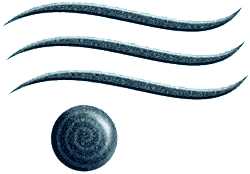

SPORTS / PERFORMANCE ENHANCEMENT
In a cover story on the 1984 Olympics,
Time Magazine reported that on the night before the women's gymnastics finals,
Mary Lou Retton (then age 16) lay in her bed in the Olympic Village mentally
rehearsing her performance ritual. She had done the same on hundreds of
previous nights, visualizing herself performing all of her routines perfectly
- imaging in her mind all the moves and rehearsing them again and again.
The result was a performance of perfection, presented with charm, poise
and confidence, culminating in a gold medal.
"What the mind can conceive, the body can achieve!"
Proof of this statement has been provided countless times.
Mary Lou Retton pictured a perfect performance in her mind, and her body
produced it. The same capability is available to any sports enthusiast.
Even if one's skills and coordination do not approach Olympic levels, they
can still carry the athlete to the heights of their personal best, providing
new levels of achievement and satisfaction. To train the body to the limits
of its capabilities without simultaneously training the mind, however, is
to invite simply a higher level of mediocrity. Sports psychologists claim
that for athletes at the Olympic level, 80% of performance ability is in
the mind. This belief has been echoed by championship players in virtually
every form of competition.
What The Mind Can Do
What can be accomplished through the powers of the mind?
Perhaps the most important thing is the development of positive attitudes.
Negative thoughts pertaining to performance skills can be changed or eliminated.
Enjoyment of the sport will be enhanced to a major degree as skills improve,
to the point where intermittent incidents of poor performance no longer
arouse feelings of discouragement, irritation or other detrimental emotional
reactions. Concentration, coordination and technique can all improve as
well as awareness of proper form and posture.
Sports enthusiasts face the same stumbling blocks in their
quest for perfection as they do in other areas of life - business, personal
relationships, achievement of their goals and ambitions. The biggest stumbling
block is fear, and fear comes in many forms. Fear of failure is always
restrictive and is very common in sports, as is its hidden partner, fear
of success - an apprehension that success can create the expectation of
further improvement. Fear of humiliation can also be very strong. Many golfers
experience near terror on the first tee where people may be watching the
first drives. Competition can produce sensations of intimidation resulting
in deterioration of skills.
Hypnotherapy (or properly learned and applied self-hypnosis)
can work to reduce or eliminate the mental obstacles to peak performance
in sports activities. This is an area where the truth of the phrase "What
the mind can conceive, the body can achieve" becomes highly evident.
The Steps To Achievement
The goal of hypnosis in athletics is not the learning
or acquisition of the basic skills involved, although these processes could
be enhanced by hypnosis in much the same way as in more academic pursuits.
The object is rather
to allow the athlete to develop the mental attitudes necessary to achieve
their personal best; to perform at their peak level.
As with all hypnotic techniques, the first step must
be relaxation. Relaxation to a level appropriate for the planting of
hypnotic suggestions is not merely resting, but a deeper level which can
be brought on by a trained hypnotherapist. Methods of achieving this level
can also be learned, through study with a teaching hypnotherapist or by
careful examination and application of methods presented in several excellent
books on the subject.
Goal-setting is essential. Without a clear objective
in mind, it is pointless to begin any task or project. Goals may be set
by athletes, coaches, therapists or a combination therof. It is important
for goals to be specific, focused on the area where improvement is desired.
"Playing better tennis" is not a specific goal. Improving one's
serve or backhand is a specific goal. Goals must be short-term, achievable,
and step-by-step so that both success and completion are experienced.
Concentration is vitally important, and sometimes
difficult to develop and maintain. Hypnotherapy has long been an effective
method of improving concentration abilities. Distractions must be eliminated.
Posthypnotic cues may prove useful in stimulating both concentration and
specific skills. Visualization, not only in mental rehearsal but at the
moment of performance, can produce dramatic results.
Finally, mental rehearsal is the ultimate key to
superior performance. It can prove more productive at times than actual
physical practice. Imagery is not just visual in nature, it can include
the other senses as well. In a diving competition, the form of the dive
is visual, the smell of chlorine in the water is olfactory, the sensation
of wetness is tactile, the cheers of the crowd are auditory. Achieving perfection
requires the use of all the senses.